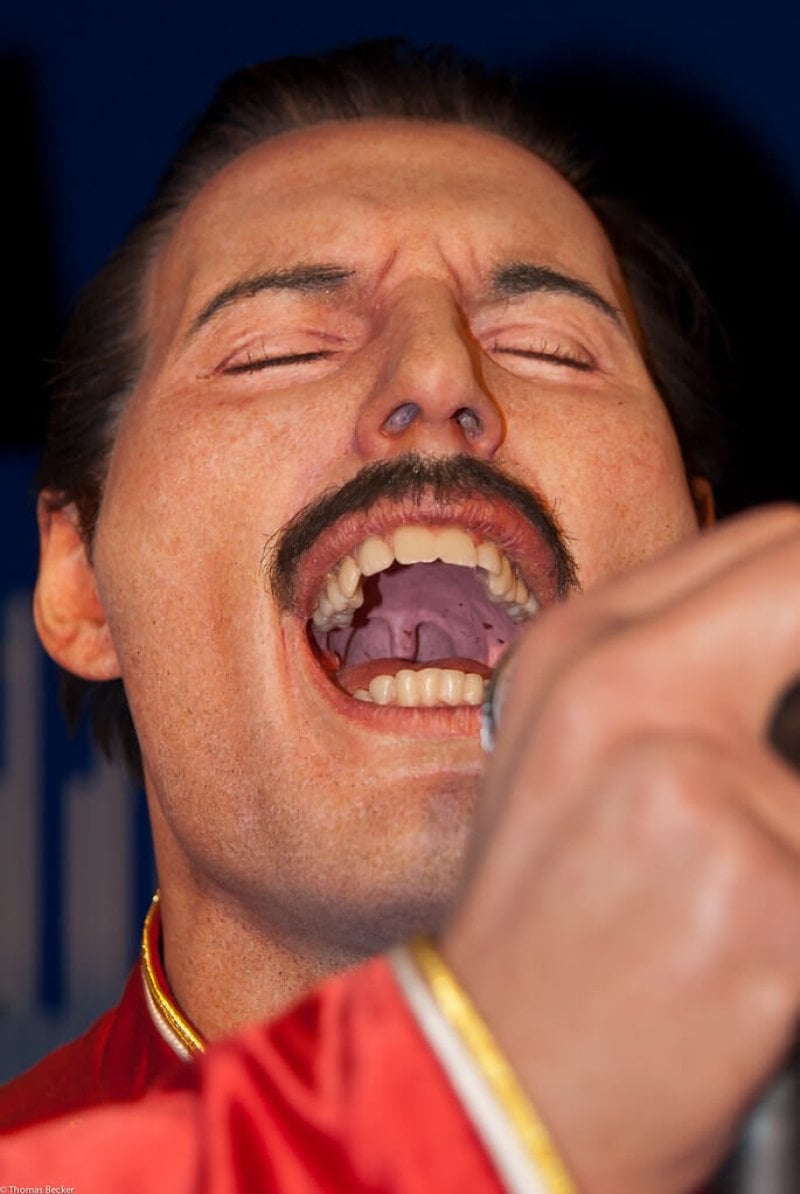Selling over 100 million records and releasing hits such as “I Want To Break Free” and “Bohemian Rhapsody“, Queen is truly one of the greatest rock bands to ever exist in the world.
Queen has broken multiple records and earned great success throughout their music career. Most of the credit for the band goes to Freddie Mercury, the frontman of the band. His vocals were extraordinarily and charismatic.
Freddie should’ve really worked hard to achieve such vocals right? Let’s have a look at the story behind Freddie Mercury and his unique vocals.
Did Freddie Mercury learn to sing?
Almost 32 years have passed since we lost the legendary singer, Freddie Mercury on November 24, 1991. Although Freddie isn’t with us anymore, his music will continue to live for him and influence the generations to come.
There’s no wonder that Freddie had a unique voice, it was so good that many research teams wanted an answer to how Freddie managed to acquire such vocals.
Many popular singers nowadays get vocal classes and even graduate in music, but did Freddie go through the same process? Many of us know the answer already. Freddie didn’t take any music classes.
Although he took piano lessons until 4th grade, he never took vocals coaching. He also participated in the school choir and his friends even formed a band together named, “The Hectics.”
Since he already knew how to play piano, we can say that he learned to sing himself. Freddie must’ve gone through an insane amount of training to progress on his vocals.
According to the journal that was published in Logopedics Phoniatrics Vocology, there was a note about his vocals. When During his normal vocals, he had a median frequency of 117.3 Hz.
This seemed normal but when the singer started to hit those vocal notes, his voice frequency went up to 2.2 Hz to 784 Hz. If you’re wondering what kind of notes he could hit with such frequency, he could almost hit notes from low F#2 to high pitch G5, full three octaves.
Why Freddie Mercury’s Singing Voice Was So Good?

His vocal range knew no boundaries, but if we surf deep down on how good he was, Freddie could even modulate his voice. Let’s take a look at what lead author Dr. Christian Herbst has to say about Mercury’s vocals,
“I’m both a graduated voice pedagogue and biophysicist, and I’m very interested in how the singing voice works on a physiological/physical level, and how good singing can be taught efficiently,” he says.
“Freddie Mercury was an incredibly skillful and versatile singer, capable of a wide range of artistic vocal expressions. Naturally, I was interested in objectively describing his singing style with adequate empirical methods: not only on an acoustical level but also attempting to understand what went on in the larynx.”
As a biophysicist and a singing teacher, Herbst was interested to know what made Merurcy’s vibrato different from other classically trained singers.
“Usually, you can sing a straight tone, but opera singers try to modulate the fundamental frequencies,” he says. “So they make the tone, if you like, a bit more vibrant. Typically, an opera singer’s vibrato has this frequency of about 5.5-6 Hz. Freddie Mercury’s is higher, and it’s also more irregular, and that kind of creates a very typical vocal fingerprint.
Did he achieve such vocals due to his extra teeth?
Freddie Mercury had four extra teeth, this condition was called “Mesiodentes.” Usually, in such cases, extra teeth are common on the upper part of your jaw. In Freddie’s case, the extras were in ‘concial’ shape.
Mercury was obviously aware of his Mesiodentes, but he was never interested in taking care if them. In fact, Freddie refused to get them treated because he believed that his teeth helped him gain incredible range on his vocals.
Fred Levine, a recently retired dentist in the Albany area of New York says that the extra tooth appears when someone has a big jaw. “Many people have supernumerary teeth, and this doesn’t cause the anterior teeth to necessarily be pushed forward. It has a lot to do with anatomical jaw size,” he said.
He adds, “In most people I have seen with supernumerary teeth, the jaw size doesn’t correspond to the space needed for the extra teeth and the extra teeth are malpositioned, protruding either toward the palate or the cheeks. Freddie Mercury’s jaw size had to be larger than normal to begin with to allow his extra teeth to fit into a normal arch form,”
This explains that his mesmerizing voice wasn’t because of the extra teeth or big jaw.

